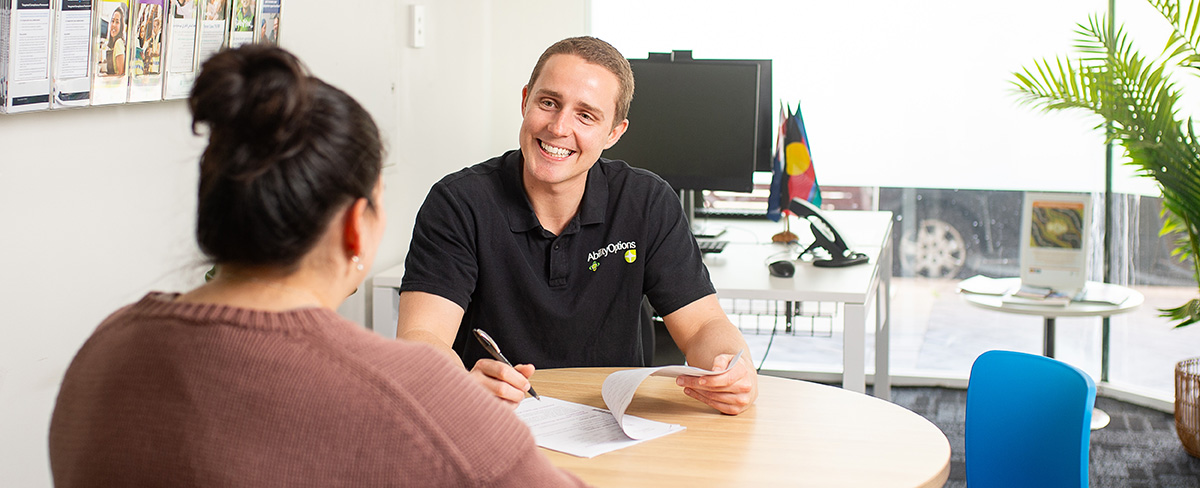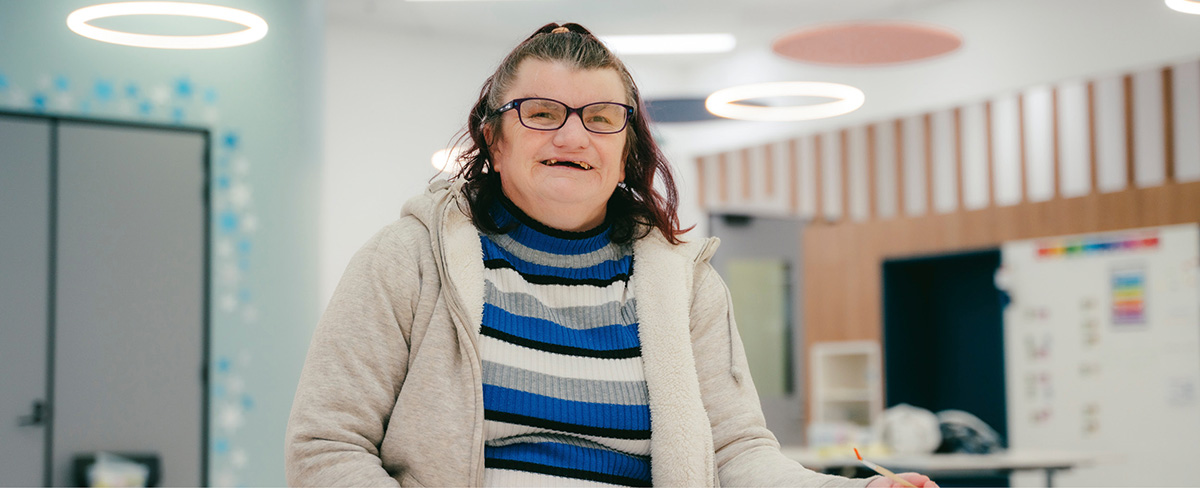Support Coordination, also called Coordination of Supports or CoS, helps you navigate and achieve your NDIS plan and goals by connecting to informal, mainstream, and funded supports. Ability Options helps you maximise your NDIS funding by considering your specific needs and providing support around any challenges you may face.
How we can help you with your NDIS plan
Our Disability Support Coordinators will work to help you understand and get the most out of your NDIS plan, helping you connect to suitable supports and providers that meet your needs and goals. You can be supported to:
- Manage your chosen supports — We’ll help you develop the independence and confidence to manage your support network. This helps you develop your relationship-building skills and learn how to ask for what you need from the right resources.
- Collaborate with formal and informal supports — We’ll bring together the right mix of providers, community resources, and family supports to make sure your plan works seamlessly for you.
- Monitor your goal progression — We’ll help you set clear short- and long-term goals, prioritise what matters most, and track your progress over time so you can see the results and stay on course.
- Gain confidence to manage your plan — Our goal is to help you build the skills and knowledge to make informed decisions, solve challenges, and take charge of your supports over time.
Our NDIS Coordination of Supports specialties
If it’s your first time managing your NDIS plan, it’s not uncommon for things to feel overwhelming and difficult to understand. Our team can support you in navigating the NDIS, and we have specific expertise in supporting people:
- With high physical needs
- With intellectual disability and autism
- In aged care
- With psychosocial disability (also known as Psychosocial Recovery Coaching)
- In the Justice System (Department of Communities and Justice – DCJ)
- Who are young and in Residential Aged Care (YPiRAC)
Where are we located?
You can rest easy knowing that our Support Coordination services are widely accessible, no matter where you are in Australia. Our Support Coordination services are available in Greater Sydney, the Central Coast, the Hunter Region and the Mid-North Coast. Our team also provides virtual support for people living remotely or in other states of Australia.
Why choose Ability Options Support Coordination?
At Ability Options, we have a large team of Disability Support Coordinators with extensive experience in the disability sector. Our Support Coordinators are incredibly passionate about supporting you to make the most out of your NDIS plan. We teach you the skills you need to understand and execute your plan while providing a good mix of support to ensure you maintain positive relationships and develop the confidence to live independently and participate within your community.
Our Disability Support Coordinators are also highly flexible and help you navigate unforeseen changes or challenges. Our team understands that your needs can change and will work with you and your support circle to ensure that your NDIS and life goals are met. We always ensure your goals and needs are top priorities and remain committed to helping you use your chosen support.
Discover our Coordination of Supports services today
Whether you’re interested in pursuing independent living, employment or further study and education within your NDIS plan, the team at Ability Option are here to help. We have many years of experience within the disability field and have the skills to provide proper guidance and support so that you can achieve your goals.
If you would like to explore our other available disability service options, feel free to get in touch today.








